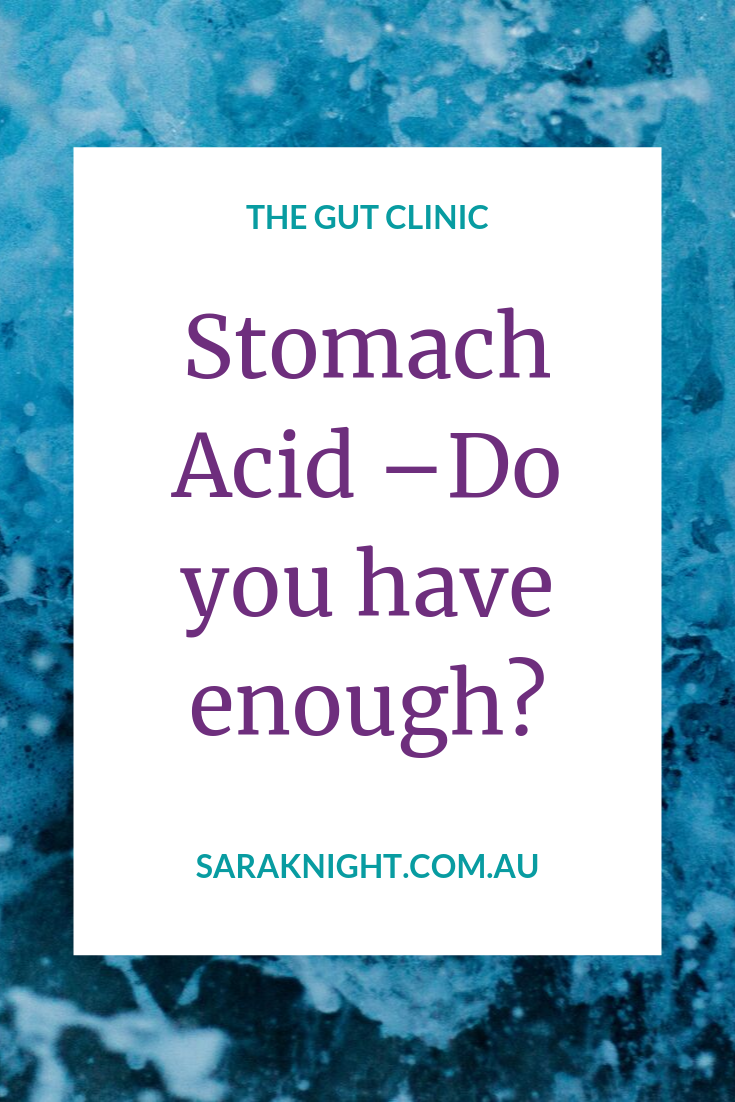
Blog
Stress and gut function
Explores the two key ways that stress affects gut function and health.
Stomach Acid - Do you have enough?
Stomach acid plays a vital role in digestion and overall health. It breaks down proteins, safeguards against harmful bacteria, activates nutrients like B12, and initiates essential digestive processes. Many face low stomach acid due to stress, diet changes, and antacid use, leading to mood issues, microbiome imbalances, nutrient deficiencies, and digestive problems. To optimize stomach acid:
Check chloride-rich foods like seaweed, celery, olives, and tomatoes.
Consider digestive bitters for gentle digestion stimulation.
Use apple cider vinegar or hydrochloric acid supplements with meals, unless you have certain conditions or sensitivities.
Remember, bitters are a temporary fix; finding the root cause is key for sustainable health.
Candida: Friend or Foe
Balancing the Candida species in our microbiomes is crucial, like maintaining a harmonious apartment building. Overgrowth can lead to various physical and mental symptoms. Testing helps identify the issue and any related deficiencies. Treatment involves diet adjustments, antifungal herbs, probiotics, and yeast management, tailored with professional guidance for long-term success.
Balancing Histamine
Histamine excess can cause various symptoms, from hayfever to eczema, anxiety, and gut problems. While histamine is essential, an overload can lead to issues. To alleviate symptoms:
Reduce histamine intake through diet and supplements.
Repair any damage caused, like skin barriers and mindset.
Identify the underlying cause, often related to poor gut health, enzymes, and bacterial imbalances. Working with a professional is crucial for achieving histamine balance.
Getting to know parasites
When digestive symptoms persist despite a food intolerance-based diet, other factors like parasite or bacterial overgrowth, SIBO, stress, or candida may be at play. A faecal PCR test with an activity assessment is crucial for accurate diagnosis. Treatment involves reducing overgrowth, restoring gut balance, and addressing other contributing conditions, taking time and careful consideration to support gut health.
Gut and Stress Link
Gut issues often stem from food and stress. Stress impacts gut function and healthy bacteria balance. In today's busy world, it's crucial to enhance stress resilience for better gut health:
Spend time outdoors and breathe deeply.
Learn to say no and prioritize tasks.
Adopt a positive mindset.
Exercise moderately.
Prioritize quality sleep.
Seek support when needed to reduce stress and improve overall well-being.
Bloating
Bloating can be uncomfortable and disrupt daily life. It's often caused by excess gas or digestive muscle issues. Simple tips like eating slowly and avoiding carbonated drinks may help. If not, consider factors like poor gut health, food intolerances, or bacterial imbalances. Don't ignore bloating; seek help for a healthier gut.
Signs of a Healthy Gut
A healthy gut isn't just about digestion. Signs include good energy levels, healthy skin, a resilient mood, and a balanced immune system. Your gut's ability to absorb nutrients affects your energy. Healthy skin reflects internal gut health. The gut influences mood, and a strong immune system depends on gut health. Don't ignore these signs.
The Rise of the Microbiome
I recently watched "The Gut Movie" and was thrilled to be surrounded by a room full of fellow gut health enthusiasts. The film follows Kale Brock's quest to explore the microbiome's impact on our health, urging viewers to value a diverse microbiome. Dr. Michael Mosley and Dr. Jason Hawrelak also contribute to this exciting field. Probiotics and prebiotics are gaining popularity, with strain-specific probiotics showing promise in conditions like depression and allergies. Stay tuned for a series on sequencing the microbiome and its significance. Remember, a balanced microbiome thrives on a high-fiber, whole food diet.I watched The Gut Movie last week - loved being in a room of around 150 people who are interested in gut health.
The Paradox of Reflux
Proton pump inhibitors (PPIs) have surged in popularity since the '90s, costing $200 million for 7 million prescriptions in Australia in 2013-2014. They treat various conditions but long-term use can pose problems like bacterial overgrowth, impaired digestion, and nutrient absorption. Short-term use may be better for some, focusing on root causes like low stomach acid, bacterial overgrowth, or stress. Simple measures include a low-carb diet, probiotics, and mindful eating. While PPIs are necessary in specific cases, long-term use should be cautious, with a focus on improving gut health through gradual reduction and addressing underlying issues.
What is the best probiotic to take?
The question of which probiotic to take isn't straightforward, as it depends on individual circumstances. Probiotics have great benefits, but those on immune-suppressing drugs, undergoing cancer treatment, or with certain autoimmune conditions should consult specialists first. For general health, a medium to high-dose multi-strain probiotic is recommended. If you've been on antibiotics, opt for a high-dose multi-strain probiotic for 30 days after. When starting antibiotics, take probiotics two hours apart, doubling the dose, but be cautious of diarrhea. Specific conditions may require strain-specific probiotics, where professional guidance is essential. Harnessing the microbiome's power is an exciting frontier in health research.
What are Digestive Enzymes?
Digestive enzymes play a vital role in breaking down food into usable molecules for our bodies. There are three types: carbohydrate-specific, protein-specific, and fat-specific enzymes. Low enzyme levels can lead to symptoms like bloating and fatigue, often confused with IBS or food intolerance. Adequate protein and zinc intake are crucial for enzyme production. To support digestion, chew food thoroughly, eat slowly, include protein and zinc-rich foods, consume raw enzyme-rich foods, and manage stress. Some may benefit from digestive enzyme supplements, but professional guidance is advisable for personalized solutions.











